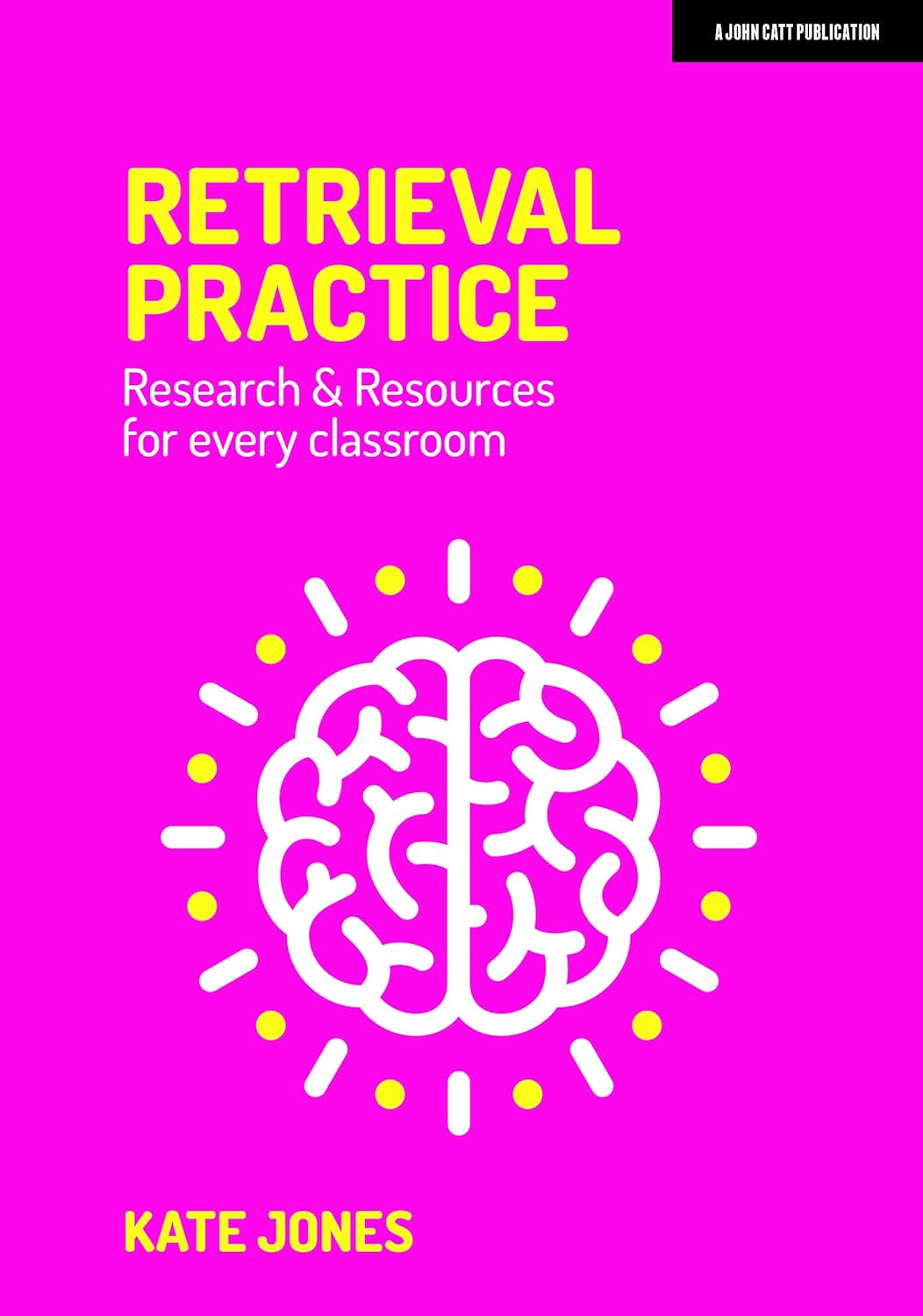About this deal
This challenges their short-term recall and allows you to challenge their ability to succinctly express knowledge they have retained. As teachers across the UK become more and more evidence-informed, we’re learning to ditch revision games, posters, highlighting, re-reading and mnemonics. And psychologists point to competence as an incredibly powerful driver of long term motivation. As we get better at things, we start to enjoy them more. Instead, what we are trying to do is deliberately interrupt the forgetting curve. It is better to think of this regular quizzing as a student learning event in itself, as opposed to an assessment. In the short term, your students will hate retrieval practice. They will hate the feeling of not knowing an answer or getting things only partially correct. But the science is clear: it works.
A knowledge organiser is a good learning tool to start from here, as it should include the core information. Re-reading is, cognitively speaking, easy to do. Reading is easy. When we re-read material we have a voice in our head saying, “Yes, I got that”, no problem.In fact a paradigm shift is occurring around revision itself. We’ve moving away from a system where we teach a sequence of lessons, have a revision lesson and then a test. Guilty of delivering lots of new content in lessons but rarely asking students to recall that knowledge? This Kate Jones retrieval practice template will help you break the habit. So, while quizzing may not be the flashiest or most fashionable classroom activity, there is an abundance of science outlining the learning rewards. Mistakes to avoid Kate Jone’s book is very evidence-based. So much so that it might be the most comprehensive overview of the research in this area that we have come across. Kate also provides a reference list of academic journals and complementary books on the area at the end of each chapter. This means that, in addition to everything you can learn from the book itself, you know exactly where to look for further reading. Usability
Explain that the students will be given time to look at the first slide and store the information in their minds, without writing anything down. New information which is not linked to anything else stored in your long-term memory will have a low retrieval strength, as well as a low storage strength. Instead, we’re moving towards a system where we remove the revision lesson and replace it with frequent opportunities for retrieval practice built in to the main sequence of lessons. But what if you did put in that effort, and it worked out? What if you persevered through that short-term pain and feeling of frustration? Imagine you really committed yourself to retrieval practice, and were duly rewarded in a test. Whether you’re a history specialist or you teach politics, RE, PE or something else entirely, you’ll find this template useful.
I think the best way to explain this finding is by thinking about the relative difficulty of the two tasks. In this episode of The Cult of Pedagogy podcast, Jennifer Gonzalez speaks to Pooja Agarwal about what retrieval practice is and how you can start incorporating it into your classroom right away. Writing good multiple-choice questions is devilishly difficult. Ours focus on the most important things we want children to remember from previous lessons. If you’re teaching a mixed-ability class, try and include some questions that all students should be able to answer. You can also include some more challenging ones that require more in-depth answers.
It may seem counterintuitive, but that effortful struggle is exactly what produces the strengthened retrieval in future.Be fair and allow one repeat, but students can’t repeat the same thing as the person that spoke before them. This, of course, is what we are aiming for in what we teach. And based on what we know about how memory works, we think that the testing effect is an indispensable tool to achieve it. I often begin planning a lesson by asking myself, “What are the five things that I want all children to remember by the end of this lesson?” These then become the targets for quiz questions in the following lesson. Retrieval Grids include spacing: Students are challenged to retrieve the concept or answer to a question. Each box is color coded for the time when students first learned or encoded the concept: concepts from the last lesson are in blue, last week in red, two weeks ago in green, etc. Space it out!
The correct answer, a wonderful piece of cultural knowledge and a useful window into the success and ambition of the Macedonian King, gets lost somewhere in laughter. The kids just remember Alexander eating a Nando’s. When I first began using test-enhanced learning I made a few mistakes that reduced the effectiveness of retrieval practice. Look at your scheme of learning for a half term. Decide what the key takeaway concepts or vocabulary are in that time.
Learners can select the correct answer from memory (higher challenge). Alternatively, you can scaffold the activity by making it multiple choice. The problem with adding in these silly options is that they distract children from what you actually want them to remember (that “there were no more worlds to conquer”). One of our favourite features of this book is that it is well designed, making it easier to read. Several illustrations summarise the key points – a very clever nod to Dual Coding, discussed in the book as well. Usefulness
 Great Deal
Great Deal 